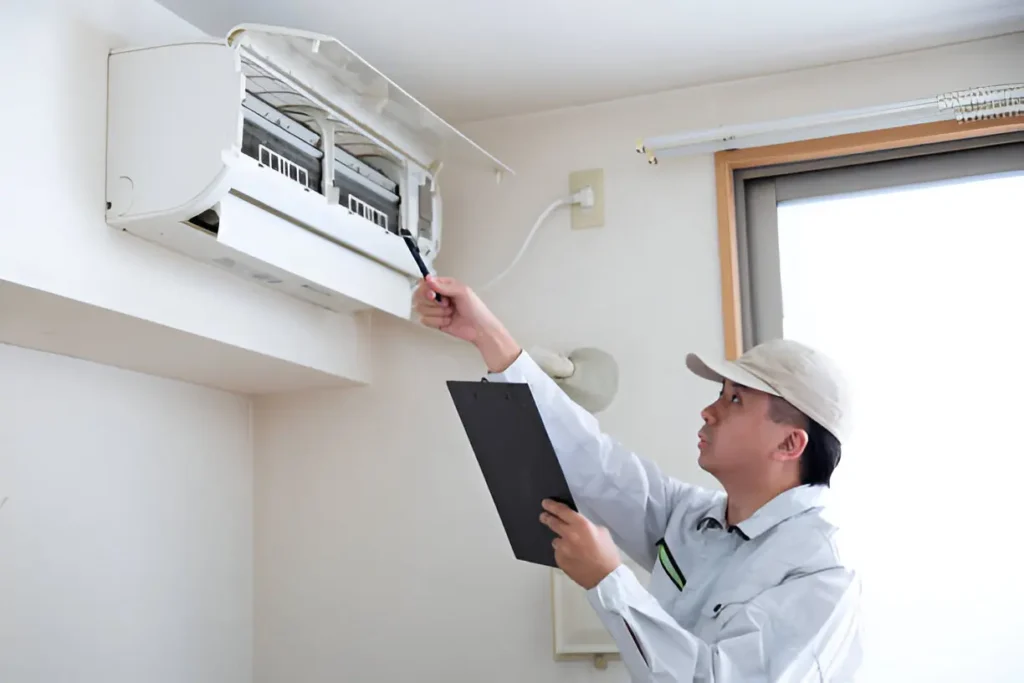Table of Contents
- The Importance of Regular HVAC Maintenance
- Seasonal HVAC Maintenance Tips
- Recognizing Early Signs of Trouble
- How Often Should You Change Your Air Filter?
- When to Call a Professional
- Improving Energy Efficiency
- Safety Tips for HVAC Maintenance
- Long-term Benefits of Proper Maintenance
The Importance of Regular HVAC Maintenance
Regular HVAC maintenance ensures your system runs efficiently and lasts longer. A well-maintained HVAC system improves air quality and reduces energy bills. By scheduling periodic check-ups and timely interventions with Extra Air Conditioning, homeowners can avoid sudden breakdowns and extend the longevity of their units. This isn’t just about comfort; it’s also about maintaining a healthy living environment. Clean filters and well-kept systems reduce allergens and harmful particles, improving indoor air quality. Furthermore, ongoing maintenance can identify minor issues before they become major problems, saving you significant money in the long run.
Seasonal HVAC Maintenance Tips
Each season requires different maintenance tips to keep your HVAC system in shape. For instance, checking for energy-saving opportunities in the spring is essential. This could include cleaning the coils, ensuring no blockages in the vents, and checking the refrigerant levels. Similarly, in the fall, you should prepare your system for the colder months by inspecting the furnace, cleaning the vents, and ensuring the heat exchanger is crack-free. Regular seasonal check-ups prepare your system for extreme temperatures and improve its efficiency and lifespan. A proactive approach each season means you’re less likely to face surprises when you need your HVAC.
Recognizing Early Signs of Trouble
Knowing the early warning signs can save you from costly repairs. Listen for unusual sounds, such as clanging, banging, or hissing, which may indicate a mechanical issue or a leak. Check for thermostat inconsistencies, like when your home isn’t reaching the desired temperature or the system cycles on and off too frequently. Beware of sudden increases in your energy bills without a corresponding increase in usage, as this could signal that your system is working harder than necessary. These signs often indicate that your HVAC system needs attention, and addressing them early can prevent further damage. Regularly inspecting your system for these signs and responding promptly can help maintain its efficiency and longevity.
How Often Should You Change Your Air Filter?
Changing the air filter is one of the most straightforward and significant maintenance tasks. Changing your HVAC filter every one to three months is generally recommended, depending on the season and the air quality in your region. High pollen seasons, pet hair, smokey environments, or renovation work can necessitate more frequent changes. Clean filters ensure your system runs efficiently and maintains good indoor air quality by reducing dust, mold spores, and allergens in your home. This simple task is necessary to ensure efficiency, higher energy bills, and even system failure. Therefore, regularly checking and changing the air filter is essential for optimal HVAC performance.
When to Call a Professional
While homeowners can do regular maintenance, specific issues require professional attention. If your system is short-cycling, has leaks, or isn’t heating/cooling correctly, it’s time to call a technician. Professionals have the tools and expertise to diagnose and fix issues that may be absent to the average homeowner. Here are some guidelines from Consumer Reports on when to seek professional help. In addition to repair work, professionals can perform comprehensive system checks and tune-ups, ensuring every component functions efficiently. Regular professional servicing can prevent emergencies and extend the lifespan of your HVAC system.
Improving Energy Efficiency
Lowering the energy consumption of your HVAC system can save you considerably on utility costs. Small changes to your ductwork, such as caulking leaks and switching to a programmable thermostat, can significantly impact you. Frequent maintenance minimizes energy waste by ensuring that all components function as intended. In addition, if you need to replace your current setup, consider investing in energy-efficient HVAC systems or components. Over time, these improvements typically pay for themselves through lower energy costs. Energy efficiency is a wise investment for any household since it lowers operating costs and has a positive environmental impact.
Safety Tips for HVAC Maintenance
The priority should always be safety when doing HVAC repairs. Before beginning work, ensure the system is off to prevent electric shocks and mechanical harm. To avoid injury, put on protective gear like gloves and safety glasses. Clear clutter from the space surrounding your HVAC unit to provide good airflow and convenient access. Ensure every instrument is functioning correctly and being used for its intended purpose. By exercising caution and being well-prepared, you may avoid mishaps and guarantee the safe and efficient completion of your maintenance duties.
Long-term Benefits of Proper Maintenance
Regular HVAC maintenance can save money, increase the system’s lifespan, and enhance the quality of the air you breathe. These advantages eventually significantly impact keeping a cozy and practical home atmosphere. Frequent inspections assist in controlling energy use and avert unplanned malfunctions, lowering your house’s carbon footprint. Long-term cost savings and fewer early replacements are two benefits of well-maintained systems. An efficient HVAC system also contributes to a more dependable and comfortable environment in your house, raising your living standard.
Also Read-Essential Tips for Maintaining Your Home’s HVAC System
